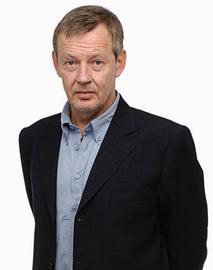The language of Enginish is acquired by all engineers - but, asks Paddy Conaghan, is it really the right one for our profession?
According to a recent report from the Royal Literary Society, it seems that the reason engineers are poor at writing can be blamed on college education. Indeed, those of us who have to check reports by young graduates might wonder if we hadn't recruited some of the very students whose college work the Society found "so incoherent that it's difficult to discern what argument is being furthered".
But then these graduates have, in any case, to acquire the language of engineers - Enginish, a style of prose that lies some way along the linguistic continuum leading to Double Dutch.
Like all languages, Enginish has its own vocabulary. Some is even intended to improve meaning. For example, a current installation is said to be existing even though Descartes and most theologians would argue that this was certainly untrue. But of course, current is a word that's fraught with difficulties for us - as, for example, in discussing "the current problem with the LV distribution system".
But it's also a live language with scope for invention. I once constructed a non-word - attemporate - to try to differentiate air-conditioning's roles of controlling temperature (attemporating) and ventilating (so people could breathe) for an American consultant. I see that the word now litters their website and await its spread through the Mid-West into the OED.
But enough of my glory! Basic Enginish requires a grounding in malaprops and misspellings. It encourages governing ideas to become governing people through substituting principles by principals. It likes consistent things to become freebies or even flattery when complementary becomes complimentary. And a particular favourite is to change the meaning of implementing to influencing (or even assuming airs and graces) through using affecting in place of effecting.
The rules of Enginish
True scholars eschew punctuation and capitals. A classic Enginish sentence should allow several meanings by waiving these rules of writing - so, for example, "the contractors drawings and specifications are in hut 7," might mean the contractors, along with some drawings and specifications are all to be found there - or that Hut 7 is the repository of the contractor's information. But if forced to venture an apostrophe, the scholar will apply it with maximum impact - hence "Engineers' body torn apart during night of in-fighting" can be much improved as "Engineer's body torn apart during night of in-fighting".
But schoolboy howlers are no longer the sole domain of the engineer and, according to the Society, are now widely extended across academia. Hence the most potent feature of ‘High Enginish' is its elaborate construction.
The most brilliant engineers are the prime exponents of impenetrable text as a result of training themselves to think faster than they can write; so their brains always move onto the next point before their cursor has captured the last. This simple expedient leaves many potential good points at large and ensures that if any do slip through onto the page, they are so entangled with the next argument as to lose their meaning.
The High Priests of Enginish also make a point of starting to write without any idea of what they intend to say - thereby embarking on an exciting voyage of discovery to reach a thesis and recommendation by meandering through issues and arguments along the most random and haphazard route.
The main advantage of this technique, apart from making for a difficult read, is that by avoiding any prior attempt to identify and rank all the pros and cons, it is possible to form almost any point of view and conclusion - and, indeed, different ones according to the day of the week.
Alas, while it has served me well over a long career, I'm beginning to wonder if Enginish is the right language for our profession - since we're now told we need to convey complex ideas to people who are interested in understanding them! Furthermore, these people often lack technical training or engineering acuity and are apparently too busy to learn our language. I am beginning to be drawn by our stark contrast with great architects whose powers of expression are the natural accompaniment, even the foundation, of their genius. Heaven forfend we go that far - but perhaps we should think about it?
Source
Building Sustainable Design
Postscript
Paddy Conaghan is a senior partner at Hoare Lea.























No comments yet